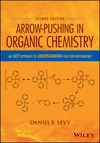How did I decide upon my career path?
Ever since I was a child, I knew I wanted to be a chemist. The funny thing was that I did not know what a chemist was, or what a chemist did. My influence clearly came from the cool racks of tubes and bubbling solutions shown in sci-fi movies.
As I advanced through school, I was very good at math and science. Furthermore, I was frequently and dangerously curious about electricity, gunpowder and fire. While I am not inclined to elaborate at this time, it is interesting to note that one of the hallmark experiences of almost every chemist I know is an early desire to experiment, coupled with a lack of fear of the consequences.
Entering college I enrolled as a chemistry major at the UC Berkeley and enthusiastically pursued the required curriculum. However, at that time, I still had not decided on what I wanted to do as a chemist. All this changed when I began to study organic chemistry. When I realized how organic compounds interact with and influence biological processes, I knew that I wanted to work towards improving the quality of life for people suffering from conditions for which there was no treatment. From that point on, I embraced organic chemistry, took all available organic chemistry courses, and pursued undergraduate research under the direction of Professor Henry Rapoport.
Through Professor Rapoport's guidance, I began to develop my laboratory skills in preparation for graduate school. While I knew that a PhD was required in order for me to fully achieve my goals, I had not yet decided if I wanted to pursue a career in academics or in industry. That decision developed during my graduate studies at MIT under the direction of Professor Satoru Masamune.
Having always been attracted to the idea of designing my own research programs, I initially felt that my best opportunities would be in academics. However, while in graduate school, I realized that there was an intense amount of competition for funding, tremendous politics regarding the tenure track and significant non-scientific activities required in order to keep a research group running. These observations were contrasted to the fact that in industry, while I would not be required to fund my own programs, I would be required to work on programs to which I was assigned. Both sides had tremendous advantages. In the end, I felt that even though I would be assigned programs, industry does not dictate how I solve the problems to which I would be assigned. To this day, I enjoy the tremendous freedom to contribute novel solutions to the design and development of pharmaceutical agents.
Can you describe your industrial experiences and career path?
Industry has been very good to me. Following completion of my PhD, I took a scientist position at Glycomed. This was a great fit for me because the pharmaceutical technologies being studied at Glycomed made excellent use of my graduate school experiences involving the chemical modification of sugars. At Glycomed, I contributed to the design of anti-inflammatory agents (selectin inhibitors and fucosyl transferase inhibitors) as well as drugs targeting angiogenesis, cancer and multiple sclerosis (matrix metalloproteinase inhibitors). As I developed my experience, I ultimately led the matrix metalloproteinase inhibitor efforts and took responsibility over three direct reports.
Following Ligand Pharmaceuticals' acquisition and the subsequent closure of Glycomed, I joined COR Therapeutics. My charge was to develop a chemistry program targeting selective inhibition of type V adenylyl cyclase for use in the treatment of congestive heart failure. In this role I developed my knowledge of heterocylic compounds and synthetic nucleoside mimics. While this project yielded extremely potent compounds with activity in whole cell assays, corporate priorities resulted in termination of the adenylyl cyclase project. For the remainder of my tenure at COR, I contributed to the design and synthesis of novel ADP receptor antagonists for use in treating deep vein thrombosis.
When COR Therapeutics was purchased and subsequently closed by Millennium Pharmaceuticals, I took a group leader position at Scios, Inc. My role as group leader was to design and execute a medicinal chemistry program targeting calmodulin dependent kinase for the treatment of post-operative arrhythmia. This was by far the largest team I had ever managed. At the peak of this effort, I had a team of ten dedicated scientists and associates. Furthermore, I managed additional resources operating from contract research organizations (CROs) in the United States and India. Unfortunately, this program was terminated when Scios was purchased by Johnson & Johnson and subsequently shut down.
The closure of Scios was particularly difficult for me because it led to my first significant stretch of unemployment. Jobs were scarce - especially for more experienced scientists looking for leadership roles. I networked every day and built relationships with many industry insiders and recruiters. Realizing that I could not simply wait for new opportunities to present themselves, I decided to start consulting. Through my consulting efforts I was able to secure laboratory space. With this resource available to me, I was able to build on a networking connection and start an independent custom synthsesis effort. My client was Intradigm Corporation and I was hired to prepare a compound critical to their development programs. My efforts were actually in competition with a CRO preparing the same compound. In the end, I was able to prepare the target, provide necessary starting materials to the CRO and transfer synthetic protocols enabling the CRO to scale up the process. Because of my work on this program, Intradigm created the role of Director of Synthetic Chemistry for me - a position which I currently hold.
While I do not know what opportunities lie in the future, I always strive to embrace the possibilities.




